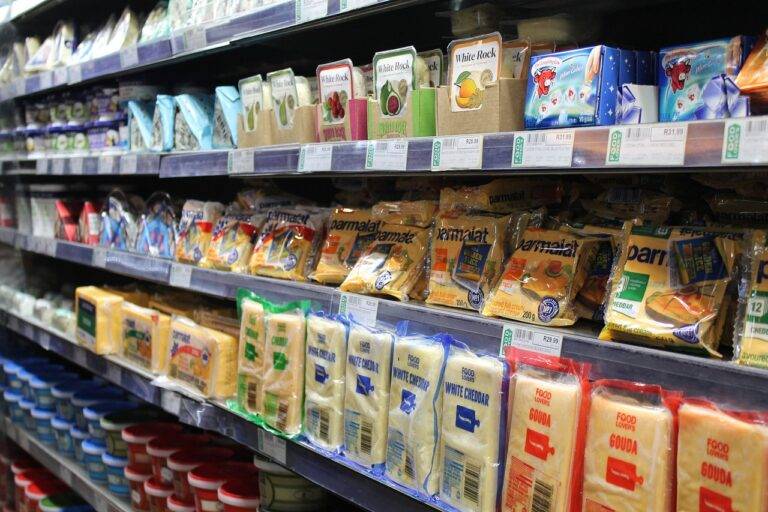The Role of Artificial Intelligence in Food Production
Agriculture is an industry that relies heavily on data and precision. With the rapid advancements in technology, artificial intelligence (AI) has started to play a significant role in revolutionizing agricultural practices. AI is being integrated into various aspects of farming, from crop monitoring to pest control, to enhance efficiency and productivity.
One of the key applications of AI in agriculture is the improvement of crop monitoring techniques. By utilizing AI-powered drones and sensors, farmers can gather real-time data about soil conditions, crop health, and growth patterns. This information allows them to make informed decisions regarding irrigation, fertilization, and harvesting schedules, ultimately leading to better crop yields and resource management.
• AI-powered drones and sensors provide real-time data on soil conditions
• Farmers can make informed decisions on irrigation and fertilization schedules
• Better crop yields and resource management through AI in crop monitoring
Another important application of AI in agriculture is pest control. By analyzing vast amounts of data, AI algorithms can identify patterns related to pest behavior and predict potential infestations. This enables farmers to take proactive measures, such as targeted pesticide applications or the introduction of natural predators, to prevent crop damage. Additionally, AI-powered robots can be used for precise weed removal without harming the surrounding plants, reducing the need for chemical herbicides.
• AI algorithms analyze data to predict pest infestations
• Proactive measures like targeted pesticide applications are taken based on predictions
• Robots powered by AI assist in precise weed removal without chemicals
Furthermore, artificial intelligence is also being utilized in improving livestock management practices. Through wearable devices equipped with sensors and AI technology, farmers can monitor the health and behavior of individual animals in real-time. This allows for early detection of diseases, optimization of feeding schedules, and overall improvement in animal welfare.
• Wearable devices with sensors help monitor animal health and behavior
• Early disease detection leads to better animal welfare
• Optimization of feeding schedules through AI technology
Increasing Efficiency in Crop Monitoring
Crop monitoring plays a vital role in maximizing agricultural productivity. The integration of artificial intelligence (AI) technologies has revolutionized the way farmers track and analyze crop conditions in real-time. Utilizing advanced sensors and drones, AI algorithms can swiftly collect and process data on various factors such as soil moisture levels, nutrient content, and plant health. This enables farmers to make informed decisions promptly, leading to more efficient resource allocation and ultimately enhancing crop yields.
Furthermore, AI-powered crop monitoring systems offer predictive capabilities, allowing farmers to anticipate potential issues such as disease outbreaks or nutrient deficiencies before they escalate. By continuously monitoring and analyzing data, these technologies provide valuable insights that help farmers implement timely interventions and optimize their crop management practices. As a result, the use of AI in crop monitoring not only streamlines operations but also contributes to sustainable farming practices by reducing the reliance on chemical inputs and minimizing environmental impact.
Improving Pest Control with AI
One of the key challenges in agriculture is the effective management of pest control to minimize crop damage and yield losses. Artificial Intelligence (AI) technology has emerged as a promising solution to address this issue. By leveraging AI algorithms and data analysis tools, farmers can now implement more precise and targeted pest control strategies.
AI-powered pest control systems utilize data from various sources such as sensors, drones, and satellite imaging to monitor crops and detect early signs of pest infestation. These systems can analyze the data in real-time and provide farmers with actionable insights to deploy timely interventions. By automating the process of pest detection and response, AI not only enhances the overall effectiveness of pest control measures but also reduces the reliance on chemical pesticides, promoting sustainable and environmentally-friendly farming practices.
How is artificial intelligence being used in agriculture?
Artificial intelligence is being used in agriculture to improve crop monitoring, pest control, and decision-making processes.
How can AI increase efficiency in crop monitoring?
AI can increase efficiency in crop monitoring by analyzing data from sensors and drones to provide real-time information on crop health and growth.
Can AI help improve pest control in agriculture?
Yes, AI can help improve pest control in agriculture by using data analysis to detect early signs of pest infestation and recommend targeted treatment solutions.
What are some benefits of using AI in pest control?
Some benefits of using AI in pest control include reduced use of pesticides, increased crop yields, and lower labor costs for farmers.
How does AI enhance decision-making processes in agriculture?
AI enhances decision-making processes in agriculture by providing insights and recommendations based on data analysis, helping farmers make more informed and efficient choices.





